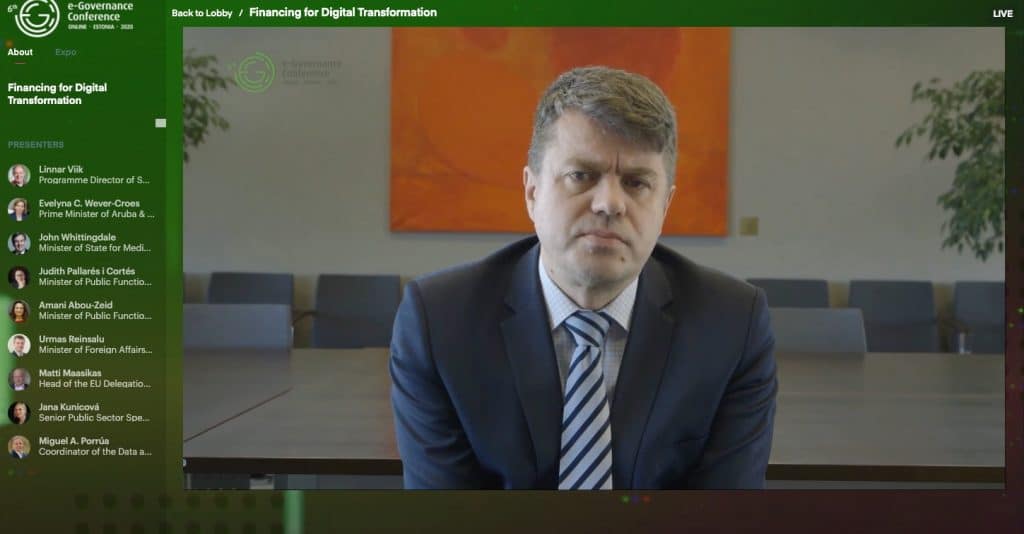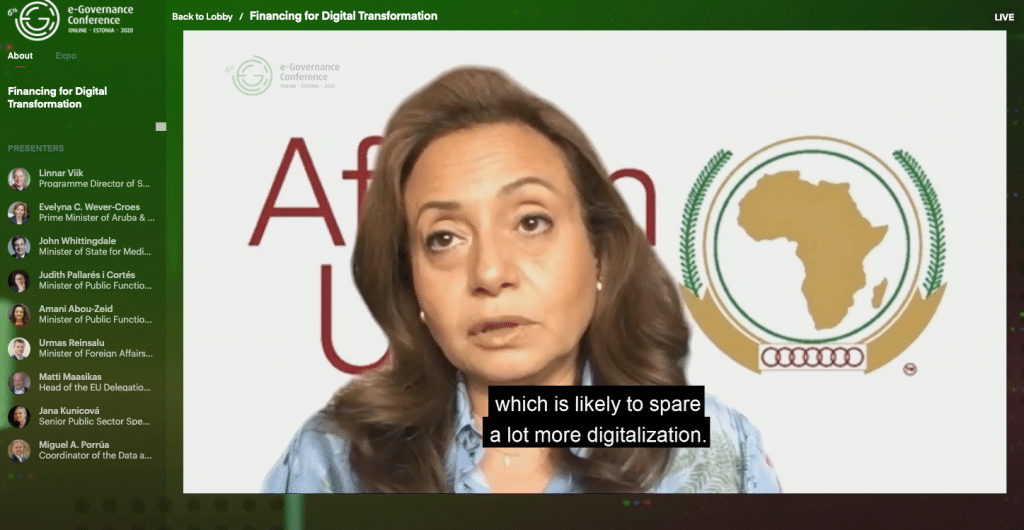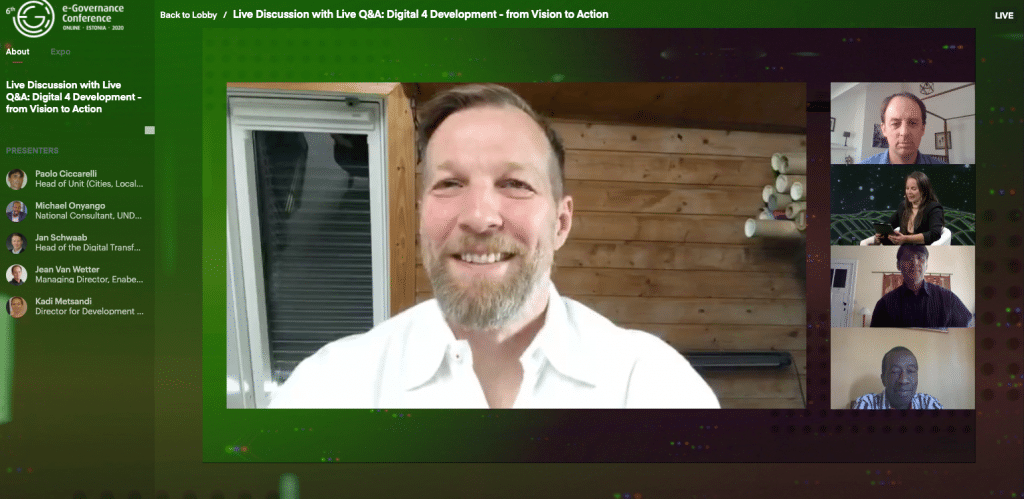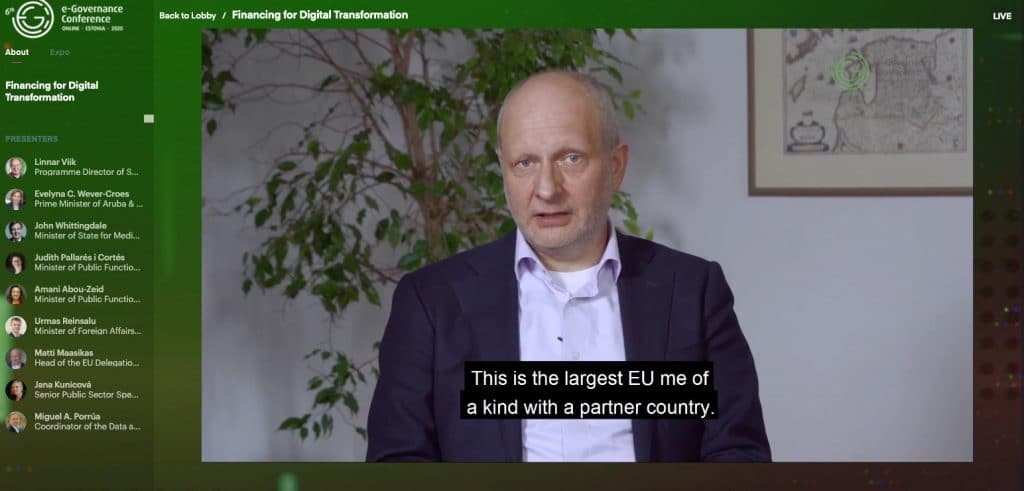Urmas Reinsalu: digital transformation must be mainstreamed into development cooperation
Talking at the e-Governance Conference today the Minister of Foreign Affairs of Estonia Urmas Reinsalu highlighted the need of financing digital transformation in the framework of development cooperation programmes and focus on digital skills and literacy.
“Supporting digital transformation has to become an integral part of any development cooperation programme and it needs to be mainstreamed. Moreover, development cooperation needs to enhance multi-donor cooperation, build on clear visions, and focus on digital skills and literacy,” said Reinsalu.

According to the Commissioner for Infrastructure, Energy, ICT and Tourism at the African Union Commission Dr Amani Abou-Zeid, digital transformation is no longer a posterity agenda, but a survival theme for most of the developing countries.
“Digital transformation has moved from a posterity agenda to a survival theme. The question is no longer why or when but how and how fast. We all should use this time to accelerate digital transition to allow recovery and build resilience in the new reality,” said Dr Abou-Zeid.

In the live discussion on financial models of digital transformation headed by Kadi Metsandi from the Ministry of Foreign Affairs Jan Schwaab, the Head of the Digital Transformation in Africa Unit at GIZ, emphasized the need for deeper collaboration between countries and with the private sector.
“Dealing with COVID-19 needs a lot more resilience and diversity. GIZ would like to see more new coalitions such as Digital4Development, more focus on diversity of the economy, and scaling that is aligned with Member States and the private sector,” said Jan Schwaab.

European Union Ambassador to Ukraine Matti Maasikas gave an example from Ukraine of how cooperation between countries on digital transformation has impacted to a country’s development.
“Ukraine is a country where digitalisation has been an important catalyst for public sector modernisation, not only in public administration reform, but also in decentralisation, justice sector, etc., which has led to better public services, enhanced transparency and increased overall efficiency,” said Maasikas.

More than 1,000 participants from 134 countries and territories are taking part in the 6th e-Governance Conference hosted by the e-Governance Academy and the Estonian Ministry of Foreign Affairs that kicked off on Monday.
The highest numbers of participants from outside of Estonia come from Ukraine, Japan, Brazil, Georgia and Canada.
The conference, which takes place online from 18 – 21 May at egovconference.ee focuses on the current challenges of governments of helping their citizens organise their lives and businesses online.
The e-Governance Conference is an annual event in international digital development cooperation. The conference has been organized by the e-Governance Academy in cooperation with the Estonian Ministry of Foreign Affairs since 2015. This year’s conference is supported by the Estonian Ministry of Foreign Affairs, the Swedish Government, the U-LEAD with Europe program, the Estonian Ministry of Economic Affairs and Communications, the City of Tallinn, Intel, Google and Microsoft.